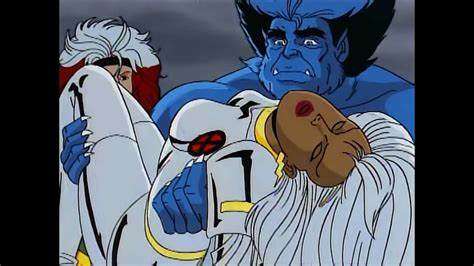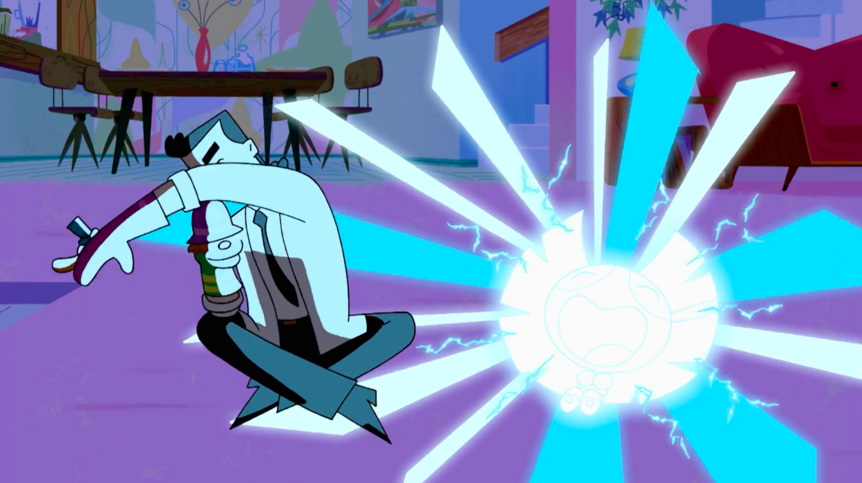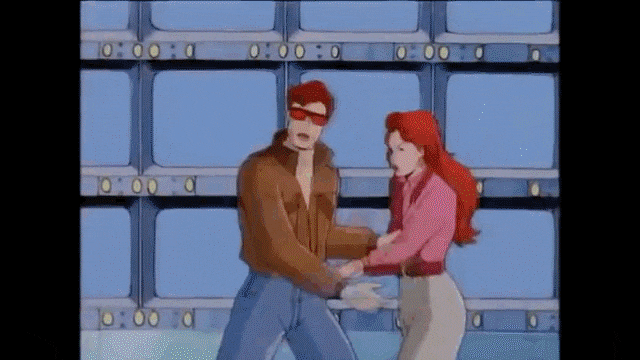Create a free profile to get unlimited access to exclusive videos, sweepstakes, and more!
Women be fainting: When she's so strong she can't even handle it

Women be fainting, or whatever Sinbad said in his standup comedy special. Since the beginning of genre, a common trope for female characters is to make them strong — but also hyperglycemic, emotional wrecks, and generally helpless. From kids shows to comic books to blockbuster movies, if a woman is ridiculously gifted, then you'd better get one of those infamous Baptist purple sheets to throw over her after she's inevitably fainted. The trope is as tired as the women it's forced on, and often it makes you want to laugh to keep from getting frustrated, but sometimes frustration is all the energy you can give to it. This is not at all to say that this trope is confined to just one gender; however, the implications when its thrust upon women is far more impactful within the framework of our existing patriarchal society.
If a lousy trope does nothing else, it can, at the very least, be unintentionally funny. A running joke that was birthed from the '90s X-Men animated series revolves around how much the X-Women faint, specifically Jean Grey. One of the strongest mutants in the Marvel universe is paid dust and treated like her mutant powers are migraine headaches and fainting. Sure, Jean's powers require her to concentrate, but it shouldn't be that taxing for a mutant old enough to have a mortgage to use powers she's been working on since her teenage years. Why is the Danger Room even in the mansion if the female members of the team are still too weak to use their powers without overexerting themselves? Why would the cosmic holy spirit, the Phoenix, choose someone so prone to fainting and tripping over their own feet? The math simply does not math that Jean Grey would be so weak.
X-Men: The Animated Series isn't the only one rampant with this trope. It's prevalent in comic books as well. There are entire story arcs dedicated to humbling mighty women and reducing them to emotionally weak and out of control victims to their own abilities, take a look at Wanda Maximoff's entire comics history.
It's maddening to see this trope still used in animated shows which mainly young viewers. Most recently, the rebooted Powerpuff Girls animated series did this with the introduction of the first and only black Powerpuff Girl, Bliss. The Professor created her before creating the Powerpuff Girls, but she had no control over her powers. Whenever she got too emotional, she'd detonate like a small bomb, each incident getting worse than the one before it. Bliss eventually leaves with an imaginary friend to a deserted island, isolating herself to keep the Professor safe. The addition of a Black Powerpuff Girls may have been done with good intentions but unfortunate that her addition had to be written in with this trope. Bliss does eventually learn how to control her powers, but only after the villain HIM takes advantage of her and her abilities.
Sometimes this trope comes with nuances that help to explain why this extremely gifted woman has not yet owned her abilities, and it adds something meaningful to the character instead of minimizing their greatness. More recent examples inclue Fast Color's Ruth and the MCU's Carol Danvers. A Kree implant was suppressing Carol's powers. However, the movie is about her journey to get her memories back and eventually overcome what was holding her back and fully owning her abilities, not undermining her greatness. In Fast Color, Ruth has seizures that cause earthquakes. She turns to drugs to suppress her powers. The movie centers around not only her, but both her mom and daughter finding healing and through it embracing each other and their incredible abilities.
Great things can happen when women are allowed to be extraordinary without getting humbled in ways that honestly don't add up. You get terrific characters like Big Barda, Jean Grey in X-Men Red, Black Panther's Shuri, The Girl with All the Gifts' Melanie, and to an extent, the Resident Evil cinematic franchise's Alice. Shuri is not only the smartest person in the MCU, but she's not humble about it. She tells Bruce Banner to his face while looking at his work that he and Tony could have done better. She also has the support and respect of her brother, T'Challa. Instead of her intellectual gifts being thought of as some unladylike burden that's hindering her, she's Wakanda's tech genius. And Big Barda gets to be unapologetically Big Barda without free of passing out while saving her husband from Granny Goodness, or casually lifting trains. She gets to flex all her Apokolips trained skills free of headaches and low blood sugar.
Let extraordinary women stand in their abilities without unnecessarily telling us that they are also weak. Not when we have the likes of Serena Williams winning whole tennis opens while pregnant. It's okay to let powerful women be precisely that without the fainting, the emotional breakdowns, the headaches, and whatever new exciting ways this trope is executed. It's not like Wolverine is running around passing out every single time his claws come out, that would be as silly as Jean Grey tripping over an extension cord.





























